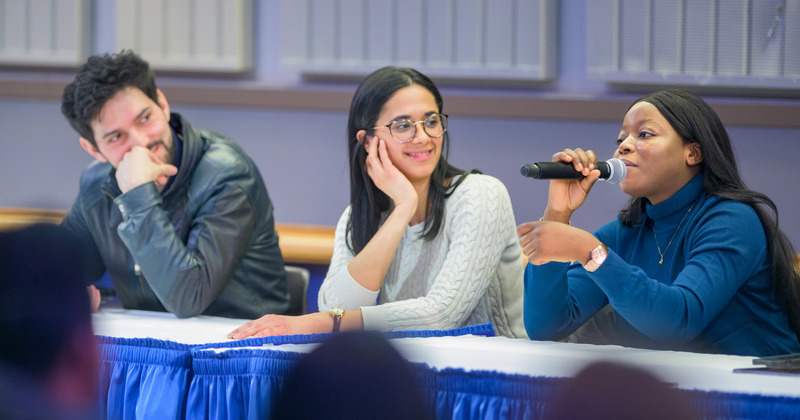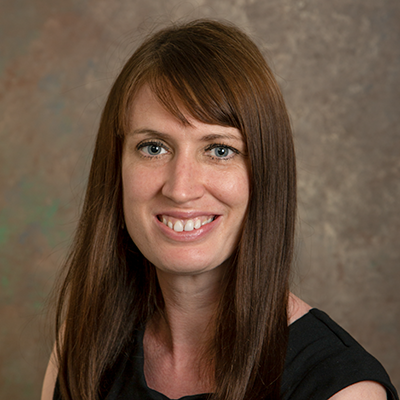
Graduate Programs

Welcome to the Graduate Programs of Linguistics & Cognitive Science
The Department of Linguistics and Cognitive Science at the University of Delaware offers master’s and doctoral degrees, a 4+1 accelerated degree as well as a certificate program in cognitive science. Our mission is to provide students with the intellectual ability to understand, create, integrate and apply sophisticated, discipline-specific knowledge.
Whether you are interested in the areas of theoretical linguistics, applied linguistics, psycholinguistics, descriptive linguistics or language and cognition, our programs include rigorous coursework, scholarship, instruction and community involvement. Our interdisciplinary approach gives students opportunities to collaborate across the College of Arts & Sciences and the University of Delaware.
Faculty advisors mentor graduate students and empower them to pursue independent research interests. Our faculty mentors have authored hundreds of research publications, are influential in prestigious organizations and editorial boards around the world, and consistently attract major funding from leading national agencies.
EXPLORE OUR GRADUATE PROGRAMS
Questions?
Contact Benjamin Bruening, director of graduate programs for the Department of Linguistics & Cognitive Science (bruening@udel.edu).
Application Process Update
Beginning with applications for fall 2024, GRE scores are optional and no longer required for admission to the program.
How to Apply
All applications for admission must be completed online. The University of Delaware's graduate application system is designed to put the applicant in control of not only the application but all documents associated with that application. You should have no need to send a single item by mail during the application process. Self-managing your own application in this way is possible because the system has designated areas within the application where each required document should be uploaded.
If you have any problems in filling out an on-line application, contact gradadmissions@udel.edu or call the admissions office at (302) 831-2129.
The application deadline for consideration for financial aid for fall admission is January 1. That means that all documents and letters of recommendation have to be uploaded and received by that date. It is in the interest of candidates to apply early. Applicants who are not seeking funding must apply by May 1. The deadline for spring admission is December 1. Because the Ph.D. program requires a progression of courses from fall to spring, spring admission is not recommended for applicants to the Ph.D. program and is rarely granted.
Students with a B.A./B.S. or M.A./M.S. in linguistics or in an appropriate related field may apply (related fields include, but are not limited to, English, modern languages, psychology, education, cognitive science, philosophy, mathematics, and computer science). Students without a degree in linguistics proper may be asked to take additional courses to meet minimum training in linguistics.
Note that any student interested in admission to the Interdisciplinary Neuroscience Graduate (ING) Ph.D. program should be aware that the application deadline for the ING program is December 1, not January 1. See the ING program page for more information.
Admission Requirements
Applicants to the M.A. and Ph.D. programs are required to submit the following:
- A completed application form;
- Official transcripts from all previous universities or colleges;
- Three letters of recommendation;
- A personal statement describing interests and objectives;
- A writing sample. This can be a paper from previous course work or from original published or unpublished research that demonstrates the ability to use the methods of research and inquiry that characterize scholarship in linguistics, cognitive science, or other related scientific disciplines.
Foreign students whose language of education is not English must also arrange to have original TOEFL scores submitted; a minimum score of 100 on the IBT (600 on the paper-based test, or an equivalent IELTS score of 7.0) is required for admission. Foreign students who hold a university degree from an institution in an English-speaking country are not required to submit TOEFL scores. Foreign students whose native language is not English and who are awarded a teaching assistantship must successfully complete the University's ITA program.
Please note: The ETS University of Delaware institution code is 5811. NO DEPARTMENT CODE IS NEEDED FOR OUR INSTITUTION. For TOEFL, list the department code as 01.
Admission to the graduate program is competitive. Those who meet the stated requirements are not guaranteed admission, nor are those who fail to meet all of those requirements necessarily precluded from admission if they offer other appropriate strengths.
The University of Delaware holistically supports its graduate students, beginning with their health and wellbeing. Benefits include a subsidized health plan and physical and behavioral health services. UD fosters a culture of academic excellence, with committed faculty and staff and access to state-of-the-art research facilities and technology. UD prioritizes professional development with job training, internships and industry partnerships. Graduates further enhance their professional growth and visibility with opportunities to work on interdisciplinary research teams, present their work at conferences and publish in academic journals. Visit the links below to learn how UD is supporting society’s future leaders, scholars, and innovators.






